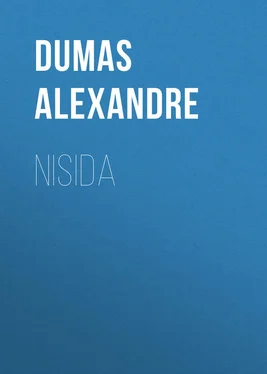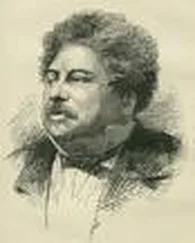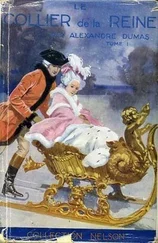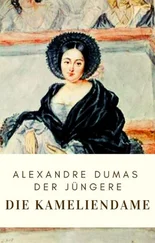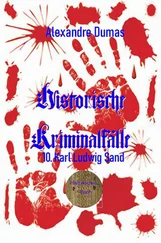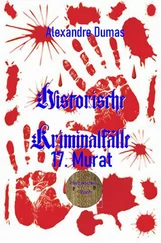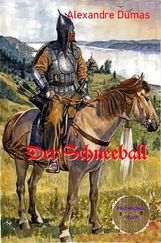Alexandre Dumas - Nisida
Здесь есть возможность читать онлайн «Alexandre Dumas - Nisida» — ознакомительный отрывок электронной книги совершенно бесплатно, а после прочтения отрывка купить полную версию. В некоторых случаях можно слушать аудио, скачать через торрент в формате fb2 и присутствует краткое содержание. Жанр: literature_19, foreign_antique, foreign_prose, на английском языке. Описание произведения, (предисловие) а так же отзывы посетителей доступны на портале библиотеки ЛибКат.
- Название:Nisida
- Автор:
- Жанр:
- Год:неизвестен
- ISBN:нет данных
- Рейтинг книги:5 / 5. Голосов: 1
-
Избранное:Добавить в избранное
- Отзывы:
-
Ваша оценка:
- 100
- 1
- 2
- 3
- 4
- 5
Nisida: краткое содержание, описание и аннотация
Предлагаем к чтению аннотацию, описание, краткое содержание или предисловие (зависит от того, что написал сам автор книги «Nisida»). Если вы не нашли необходимую информацию о книге — напишите в комментариях, мы постараемся отыскать её.
Nisida — читать онлайн ознакомительный отрывок
Ниже представлен текст книги, разбитый по страницам. Система сохранения места последней прочитанной страницы, позволяет с удобством читать онлайн бесплатно книгу «Nisida», без необходимости каждый раз заново искать на чём Вы остановились. Поставьте закладку, и сможете в любой момент перейти на страницу, на которой закончили чтение.
Интервал:
Закладка:
Alexandre Dumas
Nisida / Celebrated Crimes
If our readers, tempted by the Italian proverb about seeing Naples and then dying, were to ask us what is the most favourable moment for visiting the enchanted city, we should advise them to land at the mole, or at Mergellina, on a fine summer day and at the hour when some solemn procession is moving out of the cathedral. Nothing can give an idea of the profound and simple-hearted emotion of this populace, which has enough poetry in its soul to believe in its own happiness. The whole town adorns herself and attires herself like a bride for her wedding; the dark facades of marble and granite disappear beneath hangings of silk and festoons of flowers; the wealthy display their dazzling luxury, the poor drape themselves proudly in their rags. Everything is light, harmony, and perfume; the sound is like the hum of an immense hive, interrupted by a thousandfold outcry of joy impossible to describe. The bells repeat their sonorous sequences in every key; the arcades echo afar with the triumphal marches of military bands; the sellers of sherbet and water-melons sing out their deafening flourish from throats of copper. People form into groups; they meet, question, gesticulate; there are gleaming looks, eloquent gestures, picturesque attitudes; there is a general animation, an unknown charm, an indefinable intoxication. Earth is very near to heaven, and it is easy to understand that, if God were to banish death from this delightful spot, the Neapolitans would desire no other paradise.
The story that we are about to tell opens with one of these magical pictures. It was the Day of the Assumption in the year 1825; the sun had been up some four or five hours, and the long Via da Forcella, lighted from end to end by its slanting rays, cut the town in two, like a ribbon of watered silk. The lava pavement, carefully cleaned, shone like any mosaic, and the royal troops, with their proudly waving plumes, made a double living hedge on each side of the street. The balconies, windows, and terraces, the stands with their unsubstantial balustrades, and the wooden galleries set up during the night, were loaded with spectators, and looked not unlike the boxes of a theatre. An immense crowd, forming a medley of the brightest colours, invaded the reserved space and broke through the military barriers, here and there, like an overflowing torrent. These intrepid sightseers, nailed to their places, would have waited half their lives without giving the least sign of impatience.
At last, about noon, a cannon-shot was heard, and a cry of general satisfaction followed it. It was the signal that the procession had crossed the threshold of the church. In the same moment a charge of carabineers swept off the people who were obstructing the middle of the street, the regiments of the line opened floodgates for the overflowing crowd, and soon nothing remained on the causeway but some scared dog, shouted at by the people, hunted off by the soldiers, and fleeing at full speed. The procession came out through the Via di Vescovato. First came the guilds of merchants and craftsmen, the hatters, weavers, bakers, butchers, cutlers, and goldsmiths. They wore the prescribed dress: black coats, knee breeches, low shoes and silver buckles. As the countenances of these gentlemen offered nothing very interesting to the multitude, whisperings arose, little by little, among the spectators, then some bold spirits ventured a jest or two upon the fattest or the baldest of the townsmen, and at last the boldest of the lazzaroni slipped between the soldiers’ legs to collect the wax that was running down from the lighted tapers.
After the craftsmen, the religious orders marched past, from the Dominicans to the Carthusians, from the Carmelites to the Capuchins. They advanced slowly, their eyes cast down, their step austere, their hands on their hearts; some faces were rubicund and shining, with large cheek-hones and rounded chins, herculean heads upon bullnecks; some, thin and livid, with cheeks hollowed by suffering and penitence, and with the look of living ghosts; in short, here were the two sides of monastic life.
At this moment, Nunziata and Gelsomina, two charming damsels, taking advantage of an old corporal’s politeness, pushed forward their pretty heads into the first rank. The break in the line was conspicuous; but the sly warrior seemed just a little lax in the matter of discipline.
“Oh, there is Father Bruno!” said Gelsomina suddenly. “Good-day, Father Bruno.”
“Hush, cousin! People do not talk to the procession.”
“How absurd! He is my confessor. May I not say good-morning to my confessor?”
“Silence, chatterboxes!”
“Who was that spoke?”
“Oh, my dear, it was Brother Cucuzza, the begging friar.”
“Where is he? Where is he?”
“There he is, along there, laughing into his beard. How bold he is!”
“Ah, God in heaven! If we were to dream of him – ”
While the two cousins were pouring out endless comments upon the Capuchins and their beards, the capes of the canons and the surplices of the seminarists, the ‘feroci’ came running across from the other side to re-establish order with the help of their gun-stocks.
“By the blood of my patron saint,” cried a stentorian voice, “if I catch you between my finger and thumb, I will straighten your back for the rest of your days.”
“Who are you falling out with, Gennaro?”
“With this accursed hunchback, who has been worrying my back for the last hour, as though he could see through it.”
“It is a shame,” returned the hunchback in a tone of lamentation; “I have been here since last night, I slept out of doors to keep my place, and here is this abominable giant comes to stick himself in front of me like an obelisk.”
The hunchback was lying like a Jew, but the crowd rose unanimously against the obelisk. He was, in one way, their superior, and majorities are always made up of pigmies.
“Hi! Come down from your stand!”
“Hi! get off your pedestal!”
“Off with your hat!”
“Down with your head!”
“Sit down!”
“Lie down!”
This revival of curiosity expressing itself in invectives evidently betokened the crisis of the show. And indeed the chapters of canons, the clergy and bishops, the pages and chamberlains, the representatives of the city, and the gentlemen of the king’s chamber now appeared, and finally the king himself, who, bare-headed and carrying a taper, followed the magnificent statue of the Virgin. The contrast was striking: after the grey-headed monks and pale novices came brilliant young captains, affronting heaven with the points of their moustaches, riddling the latticed windows with killing glances, following the procession in an absent-minded way, and interrupting the holy hymns with scraps of most unorthodox conversation.
“Did you notice, my dear Doria, how like a monkey the old Marchesa d’Acquasparta takes her raspberry ice?”
“Her nose takes the colour of the ice. What fine bird is showing off to her?”
“It is the Cyrenian.”
“I beg your pardon! I have not seen that name in the Golden Book.”
“He helps the poor marquis to bear his cross.”
The officer’s profane allusion was lost in the prolonged murmur of admiration that suddenly rose from the crowd, and every gaze was turned upon one of the young girls who was strewing flowers before the holy Madonna. She was an exquisite creature. Her head glowing in the sun shine, her feet hidden amid roses and broom-blossom, she rose, tall and fair, from a pale cloud of incense, like some seraphic apparition. Her hair, of velvet blackness, fell in curls half-way down her shoulders; her brow, white as alabaster and polished as a mirror, reflected the rays of the sun; her beautiful and finely arched black eye-brows melted into the opal of her temples; her eyelids were fast down, and the curled black fringe of lashes veiled a glowing and liquid glance of divine emotion; the nose, straight, slender, and cut by two easy nostrils, gave to her profile that character of antique beauty which is vanishing day by day from the earth.
Читать дальшеИнтервал:
Закладка:
Похожие книги на «Nisida»
Представляем Вашему вниманию похожие книги на «Nisida» списком для выбора. Мы отобрали схожую по названию и смыслу литературу в надежде предоставить читателям больше вариантов отыскать новые, интересные, ещё непрочитанные произведения.
Обсуждение, отзывы о книге «Nisida» и просто собственные мнения читателей. Оставьте ваши комментарии, напишите, что Вы думаете о произведении, его смысле или главных героях. Укажите что конкретно понравилось, а что нет, и почему Вы так считаете.
